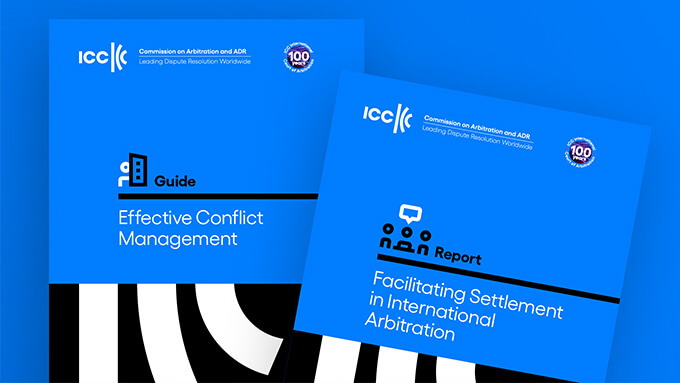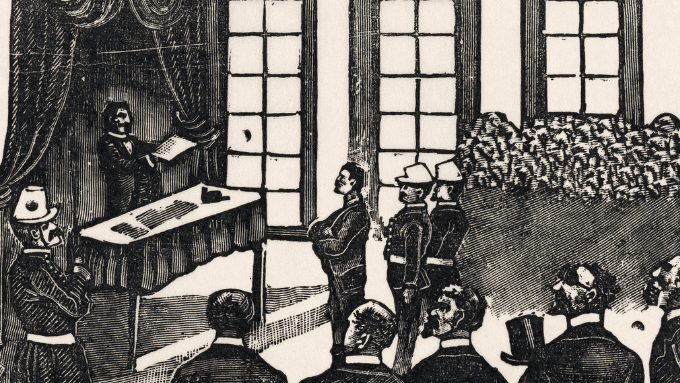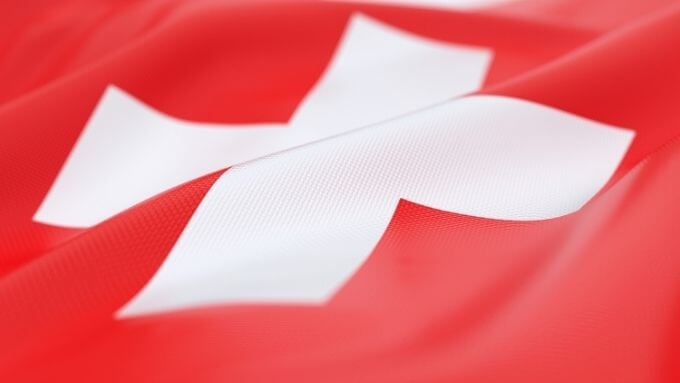Enforcement of Arbitral Awards Set Aside at the Seat of Arbitration
The enforcement of arbitral awards is a very important last step that follows the arbitration proceedings. The arbitral awards, which are not complied with through the free will of the parties, would eventually be subject to recognition and enforcement proceedings. Accordingly, the failure to enforce the award may render the arbitration proceedings entirely useless and ineffective. At this point, the grounds for refusal of enforcement should be reviewed carefully, in order to avoid unpleasantries at the end of an enforcement proceeding.
The question as to whether an arbitral award set aside at the seat of arbitration may be enforced or not is quite important, and is analyzed in this article.
In General
The Convention on the Recognition and Enforcement of Foreign Arbitral Awards (New York, 1958) (“New York Convention” or “Convention”) sets forth the grounds for refusal of enforcement, under Article V. The grounds for refusal under Article V(1) may be reviewed by the enforcement judge only if the party against whom the enforcement is invoked furnishes proof that one or several of these grounds exist. Article V(1)(e) sets forth that one of the grounds for refusal of enforcement is the fact that the award has been set aside or suspended by a competent authority of the country in which, or under the law of which, that award was made.
The wording of Article V(1) regulating that “Recognition and enforcement of the award may be refused…” grants leeway to the court before which the enforcement is sought[1]. This means that if any of the grounds for refusal are present in the case at hand, the court does not necessarily have to refuse the enforcement, and may exercise its discretion in favor of enforcement.
This discretion granted to the enforcement judge is one of the indications of the enforcement-friendly approach of the New York Convention.
Another provision of the New York Convention that should be taken into consideration on this issue is Article VII(1). Pursuant to this article, the Convention shall not deprive any interested party of any right he may have to avail himself of an arbitral award in the manner and to the extent allowed by the law or the treaties of the country where such award is sought to be relied upon. Accordingly, in case there is a more favorable provision under the national law that can be applied, the enforcement judge applying the New York Convention must apply this provision, so that the party seeking enforcement would be able to benefit therefrom. This provision, unlike Article V(1), does not contain permissive wording, and sets forth that the Convention shall not deprive any party to take advantage of the more favorable national law provisions.
Court Decisions Pertaining to Enforcement of Arbitral Awards Set Aside at the Seat of Arbitration
For many years, the prevailing opinion was that arbitral awards set aside at the country of origin would not be enforced under the New York Convention. However, this view has changed as a result of decisions granted in France, the United States of America and the Netherlands. Pursuant to these decisions, in the event that the arbitral award set aside at the place of arbitration would not have been set aside at the country of enforcement, this arbitral award may be enforced. In other words, if the grounds to set aside would not result in the set aside of the award pursuant to the law to be applied by the enforcement judge, then this arbitral award may be enforced.
An example of the decisions referred to, above, is the Hilmarton case. In this case, the French Court of Cassation (Cour de Cassation) decided to enforce an award set aside in Switzerland. The Court of Cassation held that the award was an international award that was not integrated into the legal order of that state and, therefore, continues to exist even though it has been set aside. Accordingly, the Court decided that the parties could avail themselves of French rules pertaining to recognition and enforcement of foreign arbitral awards, namely, the relevant articles of the Code of Civil Procedure, which do not include the same grounds for refusal of enforcement as Article V(1)(e) of the New York Convention. The Court of Cassation also emphasized that the enforcement of that award in France would not contradict the international public policy[2].
Similarly, in the Chromalloy case, an arbitral award was set aside by the courts of Egypt. In this case, the Arab Republic of Egypt contended that the arbitrators incorrectly applied the substantive law by refusing to apply Egyptian administrative law, which should govern the contract. The United States District Court (District of Columbia) decided that this would, at worst, constitute a mistake of law, which would not be subject to review by the enforcement court. The court further opined that the grounds to set aside in Egypt would not result in setting aside in the United States, and recognizing the decision of the Egyptian court would violate the United States public policy in favor of final and binding arbitration of commercial disputes and, therefore, decided on the enforcement of the relevant arbitral award[3].
Finally, the issue has been discussed within the scope of four Yukos arbitration awards that have been set aside in Russia. In 2009, the Amsterdam Court of Appeal decided in favor of enforcement of these awards. The Court opined that “it was very likely that the judgments by the Russian civil judge setting aside the arbitral award are the result of a dispensing of justice that must be qualified as partial and dependent;” therefore, they cannot be taken into consideration in the Netherlands during the enforcement action[4]. On the other hand, it should be emphasized that this decision has been criticized in the doctrine, since the Court of Appeal’s decision was not based on concrete evidence of a lack of impartiality on the part of the judges involved in all three instances, but on the purportedly systematic lack of independence of the Russian judiciary[5].
General Principles to be considered in the Enforcement of an Award Set Aside at the Seat of Arbitration
In light of the decisions, above, some general principles may be taken into consideration. To begin with, the grounds to set aside of an arbitral award are decisive in the analysis of whether it could be enforced in another state. Especially, if the grounds to set aside are not in line with the general practice of international arbitration, or if it is clear that the court ruling on the setting aside aims to favor its own citizens and, therefore, ruled to set aside, this should not have a negative effect on the enforcement.
Another example to set aside in some states may be based on some procedural irregularities that are considered as substantial at the seat of arbitration, but which would not have an effect on the substance of the arbitral award. Instances such as the lack of signature of arbitrators on each page of the arbitral award, or the fact that the arbitral tribunal held a hearing on a national holiday, even though all of the witnesses attended the hearing, may be given as example.
Conclusion
In practice, there are instances in which some national courts decide on the setting aside of an arbitral award without any reasonable grounds. These set aside decisions should not have a negative impact on the enforcement in other states, as this interpretation would endanger the uniform application of the New York Convention. Accordingly, the reasons upon which the decision to set aside are based should be analyzed by the enforcement judge, in order to decide on the enforcement.
[1] Note that the Turkish translation of the relevant article does not properly reflect this wording. The Turkish translation, stating that “the enforcement of awards may not be rejected unless any of the grounds set forth hereunder are present…” does not correctly reflect that there is a discretionary power of the enforcement judge even though the grounds exist in the case at hand. However, the relevant article should be interpreted in accordance with the English version, which is one of the official languages of the New York Convention.
[2] Cour de Cassation, Societe Hilmarton Ltd. V. Societe Omnium de Traitement et de Valorisation (OTV), 23 March 1994, Van den Berg (ed), Yearbook Commercial Arbitration 1995, p. 663.
[3] United States District Court, District of Columbia, 31.07.1986, Civil no. 94-2339, Chromalloy Aeroservices Inc. v. The Arab Republic of Egypt, (1997), Van den Berg (ed), Yearbook Commercial Arbitration 1997, p. 1001.
[4] Court of Appeal of Amsterdam, 28.04.2009, LJN BI2451; Van den Berg, Enforcement of Arbitral Awards Annulled in Russia, Case Comment on Court of Appeal of Amsterdam, April 28, 2009, Journal of International Arbitration, 27(2), 2010.
[5] Van den Berg, Ibid, p.181.
All rights of this article are reserved. This article may not be used, reproduced, copied, published, distributed, or otherwise disseminated without quotation or Erdem & Erdem Law Firm's written consent. Any content created without citing the resource or Erdem & Erdem Law Firm’s written consent is regularly tracked, and legal action will be taken in case of violation.
Other Contents

Emergency arbitration addresses the need for interim protection before the arbitral tribunal is constituted in institutional arbitrations. Arbitral institutions establish short timeframes to ensure parties can obtain interim relief quickly. For example, the International Chamber of Commerce (“ICC”) requires that the emergency...

International arbitration remains the preferred mechanism for resolving complex cross-border disputes. Yet despite its advantages—neutrality, enforceability, flexibility—arbitration is frequently criticized for being too slow, too expensive, and too procedurally heavy. Often, parties proceed through hearings and...

For arbitral awards rendered in international commercial arbitration to produce legal effects in foreign jurisdictions, they must be subjected to proceedings for “recognition” and “enforcement.” This process is governed by the New York Convention as well as by the provisions of the Law on Private International Law...

Arbitrability, the determination of whether a specific subject matter can be resolved through arbitration, constitutes a fundamental aspect of arbitration within the scope of international commercial dispute resolution. This concept draws a delicate balance between party autonomy—a fundamental principle of arbitration...

The recognition, enforcement, and annulment of foreign court and arbitral awards in Türkiye are processes in which public policy emerges as one of the most critical criteria for review, both in theory and in practice. The Court of Cassation decisions determine the direction of case law regarding the scope and...

As is well known, the action for annulment of objection is a special type of lawsuit regulated under Article 67 of the Turkish Execution and Bankruptcy Law No. 2004 (“EBL”). The primary objective of this action is to nullify a debtor’s objection to execution proceedings. Despite its procedural function of facilitating...

On 16 December 2024, the London Court of International Arbitration (“LCIA”) released its third batch of challenge decisions covering the period from 22 July 2017 to 31 December 2022. The LCIA has also issued a detailed commentary that identifies key legal themes and analytical trends, offering practitioners...

The International Chamber of Commerce (“ICC”) has published its report on the dispute resolution statistics for 2023 (“Report”) , shedding light on the evolving landscape of international arbitration...

Syndicated loans undoubtedly hold a significant position among global financing models. In 2023 alone, 3,655 syndicated loans were provided to companies in the US, with their total value reaching USD 2.4 trillion...

Preliminary attachment refers to the temporary seizure of a debtor's assets to secure a creditor's claim. While it serves as a vital instrument for safeguarding the rights of creditors, it is subject to specific and stringent conditions under Turkish law to prevent any potential misuse...

One of the most important reasons for parties to choose arbitration is the opportunity to freely choose their arbitrators. This freedom granted to the parties also distinguishes arbitration from proceedings before state courts, where the parties are deprived of the power to determine the judges who will conduct the...

The 6th Civil Chamber of the Court of Cassation ruled on October 12, 2022, that national courts have jurisdiction over objections to provisional measures in international arbitration disputes...

The declaration of intent to resolve disputes through arbitration is the fundamental constituent element of an arbitration agreement. To speak of a valid arbitration agreement, the parties' intention to arbitrate must emerge in a way that leaves no room for dispute...

In the wake of the evolving dynamics of commercial transactions, the Netherlands Arbitration Institute Foundation (NAI) announced new arbitration rules . 2024 NAI Arbitration Rules are in force as of 1 March 2024 and will be applicable on proceedings filed on or after this date...

With the global shift to online activities, domain names play a crucial role in identifying businesses. It is more common than ever for a domain name to be registered that is confusingly similar to a trademark or service mark...

The ICC Commission on Arbitration and ADR (“Commission”) published a new guide and report with the aim to increase awareness on alternative dispute resolution (“ADR”) mechanisms to prevent disputes and strengthen the relationship between all stakeholders.The Guide on Effective Conflict Management...

Mergers and Acquisitions (“M&A”) are restructuring of companies or assets through various types of financial transactions, such as mergers, acquisitions, purchase of assets, or management acquisitions. This Newsletter article covers M&A disputes being solved before arbitral tribunals.

In the context of arbitration practice, the principle of revision au fond means that the courts can not examine the merits of a dispute when reviewing an arbitral award. This principle is most commonly encountered in set aside and enforcement proceedings. An arbitral award is evidence of the parties’ willingness...

Under Turkish law, parties may agree on the settlement of disputes that have arisen or may arise, regarding the rights that they can freely dispose of, by arbitration. However, disputes which are not subject to the will of parties, such as the disputes relating to in rem rights of immovables, bankruptcy law...

On 4 September 2020, a research project “Does a Right to a Physical Hearing Exist in International Arbitration?” was launched by an International Council for Commercial Arbitration (“ICCA”) taskforce. Due to the Covid-19 pandemic, many arbitration hearings were held online. Many institutional rules...

Dubai International Arbitration Center amended its Arbitration Rules on 25 February 2022. The 2022 Arbitration Rules were published on 2 March 2022 and came into effect on 21 March 2022. The Rules will be applied to arbitrations that are filed after 21 March 2022; unless parties agree otherwise...

In the aftermath of the Achmea decision, controversies on intra-EU arbitrations continue. Most recently, the Paris Court of Appeal has annulled two arbitral awards rendered against Poland. Meanwhile, the Higher Regional Court of Berlin has refused to declare that an Irish investor’s ICSID claim...


Under Turkish law, the legal remedy that can be applied against arbitral awards is an annulment action. Law on International Arbitration No. 4686 (“IAL”) finds its application area in arbitration proceedings where Turkey is the place of arbitration...

It is well known that following a decision of the Court of Justice of the European Union, problems arose related to arbitration of intra-EU disputes, and particularly arbitration under the Energy Charter Treaty...

Arbitration in corporate law contains controversial elements in many respects, especially the issue of arbitrability. Even in legal systems where these disputes are considered to be arbitrable, uncertainties remain on whether an arbitration clause can be included in the articles of...





Arbitration has benifited from a great increase in the use of technology which has directly effected the conduct of proceedings. More particularly, with digitalization, the way that we conduct arbitration proceedings has been changed to reflect the current needs of parties, with an aim of increasing time...
































































